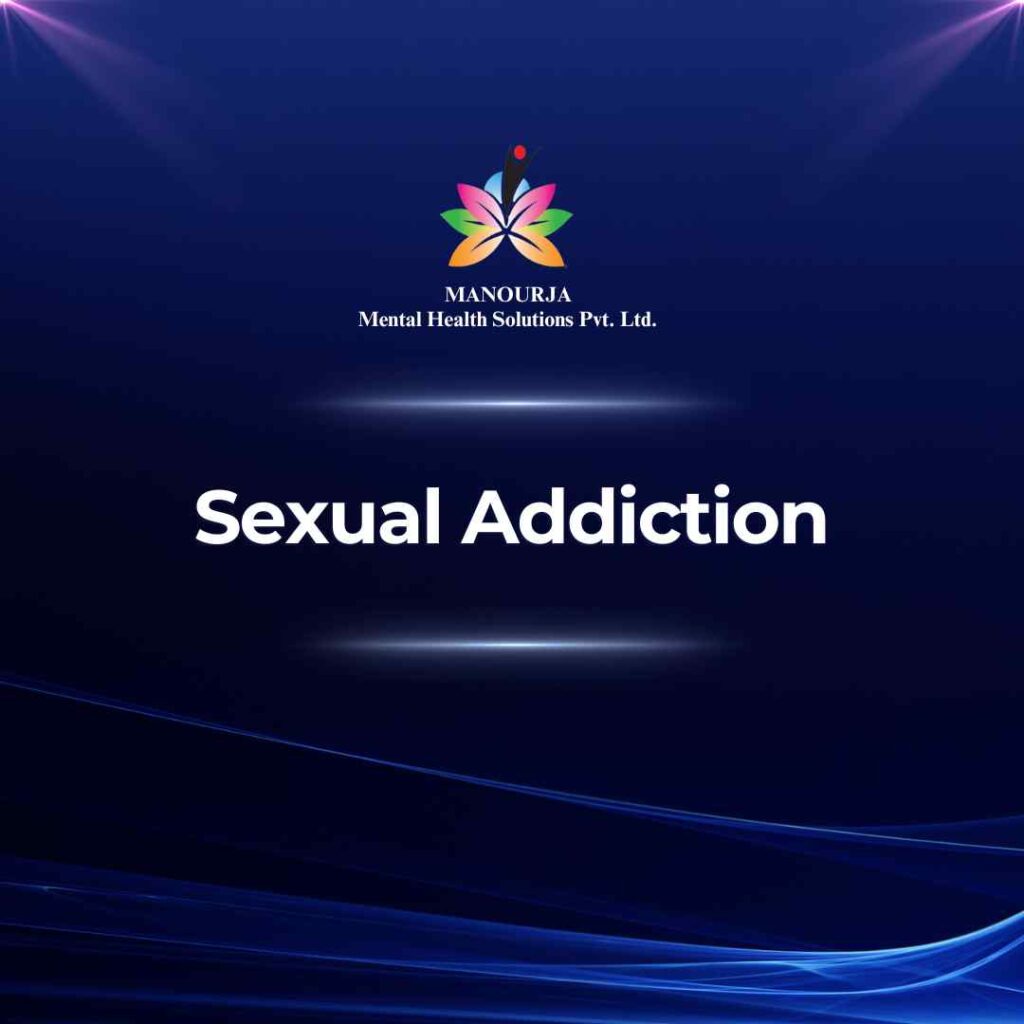Sexual Addiction

Sexual addiction, also known as hypersexuality or compulsive sexual behavior disorder, is a complex and controversial condition characterized by an excessive preoccupation with sexual thoughts, fantasies, urges, or behaviors that often result in significant distress or impairment in various areas of life.
Here’s a breakdown of its meaning, characteristics, forms, and treatment:
Meaning
Sexual addiction is a behavioral addiction in which individuals struggle to control their sexual impulses, leading to compulsive and often destructive sexual behaviors. It involves a persistent pattern of engaging in sexual activities despite negative consequences, such as relationship problems, health risks, legal issues, and emotional distress.
Characteristics
- Preoccupation with sex: Constantly thinking about sexual activities, fantasies, or images.
- Compulsive behavior: Engaging in sexual activities excessively and repetitively, often to the point of neglecting responsibilities or risking harm.
- Loss of control: Difficulty controlling or stopping sexual behaviors, even when they are unwanted or harmful.
- Negative consequences: Experiencing adverse effects on relationships, work, finances, and emotional well-being as a result of sexual behaviors.
- Escalation: Needing increasing intensity or frequency of sexual activities to achieve the same level of satisfaction.
- Distress or impairment: Feeling distressed or impaired by the inability to control sexual urges or behaviors, leading to significant interference in daily functioning.
Forms
- Compulsive masturbation
- Excessive pornography consumption
- Multiple sexual partners or infidelity
- Risky sexual behaviors (e.g., unprotected sex, anonymous sex, exhibitionism)
- Obsessive sexual fantasies or thoughts
Treatment
- Psychotherapy: Cognitive-behavioral therapy (CBT) and other forms of psychotherapy can help individuals explore the underlying factors contributing to their sexual addiction and develop coping strategies to manage triggers and cravings.
- Support groups: Joining support groups such as Sex Addicts Anonymous (SAA) or seeking peer support from individuals facing similar challenges can provide a sense of community and encouragement during recovery.
- Medication: In some cases, medications such as selective serotonin reuptake inhibitors (SSRIs) or other psychiatric medications may be prescribed to help manage underlying mood or anxiety disorders that co-occur with sexual addiction.
- Couples therapy: If sexual addiction has caused strain on relationships, couples therapy can help improve communication, rebuild trust, and address issues related to intimacy and boundaries.
Overall, treatment for sexual addiction typically involves a combination of therapy, support groups, and sometimes medication, tailored to the individual’s specific needs and circumstances. Recovery from sexual addiction is possible with dedication, support, and professional guidance
At MANOURJA, we believe in the transformative power of counseling. Our experienced therapists offer a safe and supportive space where you can explore your thoughts, emotions, and challenges. Through personalized counselling sessions, we’ll work together to develop coping strategies, build resilience, and achieve lasting positive change. Discover the path to a healthier, happier you with MANOURJA counselling services.
MANOURJA Rehabilitation Services
At MANOURJA, we’re dedicated to helping you in rebuild your life, after difficult times. Our rehabilitation services focus on understanding what you need to move forward, whether you’re recovering from addiction, trauma, or any psychological – social challenges. We create personalized plans, that are all about helping you, regain your strength and find hope again. With a caring team by your side, you’ll have the support to make real progress and take steps toward a brighter, healthier future
